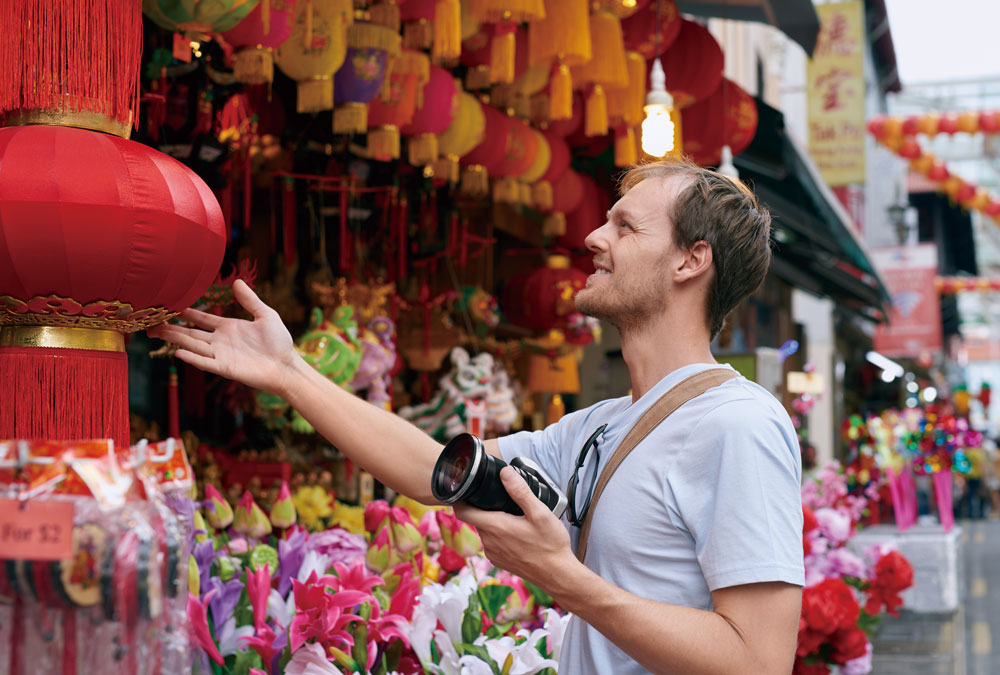
Taiwan Tourism 2025
The Taiwan Tourism 2025 campaign was launched to realize the vision of a "tourism-based coun-try," the policy concept of "mainstreaming tourism," and development goals under the “Tour-ism 2030: Taiwan Tourism Policy White Paper” to make Taiwan an "important tourism destina-tion in Asia." In response to COVID-19, the campaign prioritized improving the quality of do-mestic tourism and promoting the post-pandemic transformation of the tourism industry. It also aimed to gradually develop international tourism markets in line with global pandemic-related border controls. One part of this effort is to highlight Taiwan's success at fighting the pandemic, which has helped create a positive image for the country and strengthened its position as a tourism power.
Early Phase: Upgrading Domestic Tourism and Promoting the Post-Pandemic Transformation of the Tourism Industry
The Tourism Bureau stabilized the domestic tourism market through a strategy focused on "creat-ing attractive destinations, preparing theme tours, optimizing the industrial environment, and promoting digital experiences." This laid a foundation for follow-up promotion of international tourism.
Creating attractive destinations
In conjunction with the Executive Yuan's Tribute to the Mountains, Tribute to the Seas, local revi-talization, and other high-level policies, the Tourism Bureau inventoried tourism resources, as well as promoted regional tourism brands and created local and heterogeneous attractions through tourism circles and industry alliances. It also improved scenic area restrooms and signage to create an accessible and safe travel environment and lift overall tourism quality.

Preparing Theme Tours
The Tourism Bureau took measures to mainstream tourism, expand cross-domain and interde-partmental cooperation, and develop refined, in-depth, local, and specialty tourism products. The Bureau promoted theme tour routes combining bicycling, railway travel, island hopping, museum visits, and other features in 100 towns. It also brought together central and local government re-sources to develop locally distinctive tourism activities and promote the biannual Taiwan tourism calendar and world-class tourism activities.
Optimizing the Industry Environment
The Tourism Bureau integrated disciplines and technologies from different fields to optimize the industry environment, upgrade management mechanisms, foster digital literacy, enhance overall skill levels, and improve service quality. The focus of these efforts is to strengthen capabilities and stimulate innovation as the tourism sector emerges from the challenges of the current pandemic.
Travel Agencies: In order to promote transformation within the travel agency sector, the Tourism Bureau helped travel agents develop new innovative tourism products that offer distinctive and in-depth experiences to travelers. This included enhanced cross-domain integration and assisting suppliers in optimizing their services. We also introduced concepts and trends such as Enterprise Resource Planning (ERP), electronic transaction certification, and other digital operations to help businesses transform themselves and create new opportunities.
Hotels: The Tourism Bureau provided guidance to the hotel industry in facilities planning, up-grading and the implementation of ERP, Performance Management Systems (PMS), self-serve check-in counters, and other digital operations. The Bureau also assisted hotels in the develop-ment of accessible and Muslim-friendly accommodation environments. The Taiwan Hosts selec-tion activity was continued with guidance on training courses, preparation of the domestic hotel reception environment, and the optimizing of industry services and facilities.
Amusement Parks: Guidance was provided to the amusement park industry in several areas. This included support in transforming operations, creating distinctive brands, integrating outdoor learning, active aging programs, attracting larger numbers of Muslim guests, and introducing ac-cessible facilities as well as new digital systems.
Promoting Digital Experiences
The Tourism Bureau encouraged the adoption of digital technologiesy in the travel and tourism sectors, the integration of digital travel services, and the development of real-time, convenient digital tourism experiences and travel services for independent travelers. The Bureau also endeavored to assist in areas such as ; the strengthening ing of digital experiences, and development developingof mobile exploration concepts, augmented/virtual reality (AR/VR), and other digital value-added services. We also encouraged ; and closer cooperation with digital media to expand the benefits of digital tourism marketing.
Later Phase: All-out Push to 'Expand the International Tourism Mar-ket and Strengthen International Marketing'
Later Phase: All-out Push to "Expand the International Tourism Mar-ket and Strengthen International Marketing"
廣拓觀光客源
視疫情發展之變化漸次調整宣傳步調,疫情解封後,優先復甦來臺旅客人次為目標,再衝刺穩定成長。重點包含精準開拓國際市場客源,爭取高消費目標客群,並強化區域觀光行銷效能及國際行銷夥伴關係。
Reorganizing the Tourism Bureau as the Tourism Administration
The Tourism Bureau is in charge of tourism resource development, management of the tourism industry, international tourism marketing, and domestic tourism promotion. In addition to these diverse and far-reaching tasks, it faces the challenge of transforming and diversifying Taiwan's tourism industry. Accomplishing these tasks successfully is an increasingly difficult challenge giv-en the limits inherent in the Bureau's current organizational structure and manpower level. The government has therefore continued to promote the restructuring of the Tourism Bureau into a new Tourism Administration in order to strengthen its tourism-related organizational functions and to enhance its capabilities in areas such as formulating and implementing policies geared to-ward integrating tourism resources, strengthening the base of domestic tourism, and expanding inbound international tourism markets. This reorganization aligns with the policy course outlined in the Taiwan Tourism 2030—Taiwan Tourism Policy White Paper, which includes the goal of achieving the vision of a "tourism-based country" and the policy concept of "mainstreaming tour-ism." The White Paper also recommends increased central and local government policy support for tourism development.
In line with the trend toward sustainable tourism, the Tourism Bureau will adopt higher-level, forward-looking thinking to strengthen resource integration, industrial development, regional tourism, e-tourism, and other developmental directions. It reviewed and then amended the draft Tourism Administration Organic Law, and then submitted this to the Ministry of Transportation & Communications (MOTC) on September 26, 2020. The MOTC presented the draft law to the Ex-ecutive Yuan for deliberation on October 30th of that year to demonstrate its determination and its emphasis on tourism development. The Tourism Bureau also established an "MOTC Advisory Group for Planning the Establishment of the Tourism Administration" to coordinate inter-agency affairs, build consensus, and strengthen resource integration.

